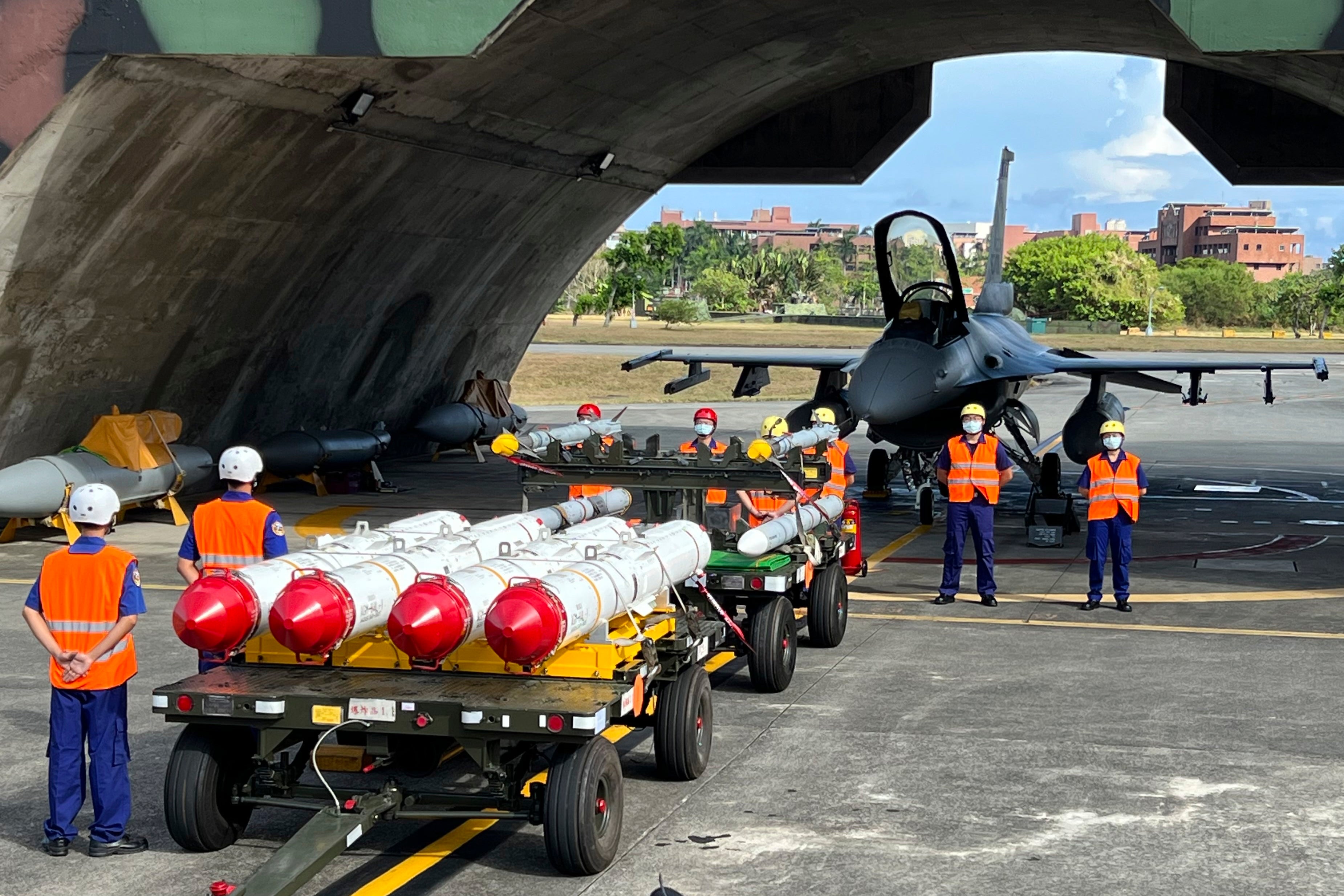China sanctions Raytheon, Boeing Defense CEOs over Taiwan
China has announced sanctions against the CEOs of American defense contractors Raytheon and Boeing Defense over a major arms sale to rival Taiwan

Your support helps us to tell the story
From reproductive rights to climate change to Big Tech, The Independent is on the ground when the story is developing. Whether it's investigating the financials of Elon Musk's pro-Trump PAC or producing our latest documentary, 'The A Word', which shines a light on the American women fighting for reproductive rights, we know how important it is to parse out the facts from the messaging.
At such a critical moment in US history, we need reporters on the ground. Your donation allows us to keep sending journalists to speak to both sides of the story.
The Independent is trusted by Americans across the entire political spectrum. And unlike many other quality news outlets, we choose not to lock Americans out of our reporting and analysis with paywalls. We believe quality journalism should be available to everyone, paid for by those who can afford it.
Your support makes all the difference.China announced sanctions on Friday against the CEOs of American defense contractors Raytheon and Boeing Defense over a major U.S. arms sale to rival Taiwan.
Foreign Ministry spokesperson Mao Ning did not specify what the sanctions would be against Gregory Hayes, chairman and CEO of Raytheon Technologies Corp., and Ted Colbert, president and CEO of Boeing Defense, Space and Security.
It wasn't immediately clear what impact they would have on the executives or their companies, but such sanctions are often mainly symbolic in nature.
The U.S. announced a $1.09 billion arms sale to Taiwan last week, including $355 million for Boeing's Harpoon missiles and $85 million for Raytheon's Sidewinder missiles.
“We once again urge the U.S. government and relevant parties to ... stop arms sales to Taiwan and military contact with Taiwan, and stop creating new factors that could lead to tensions in the Taiwan Strait," Mao said at a daily briefing.
China claims Taiwan, a self-governing island of 23 million people off its east coast, as its territory and says it must eventually come under its control. Taiwan and China split in 1949 during a civil war that brought the Communist Party to power in Beijing.
The U.S. does not formally recognize Taiwan under its one-China policy but is the island's main supplier of military equipment and is bound by its own laws to ensure Taiwan can defend itself.